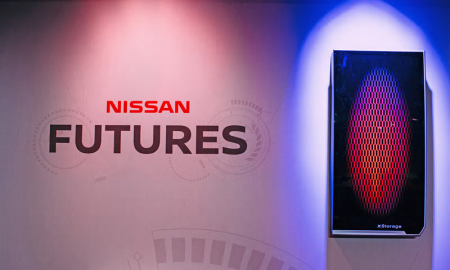Batteries that have powered electric cars around the UK will get a second life providing energy storage for households, with the launch this week of a British-made home battery to rival the one made by Elon Musk’s Tesla.

The cells will be made by the Japanese car-maker Nissan in Sunderland, where its popular Leaf electric car is built, and sold in partnership with the US power firm Eaton. Buyers will be able to choose cheaper, used batteries that are no longer fit for electric car use, or pricier new ones.
They are believed to be the first British-made household batteries pitched to the embryonic UK home storage market.
The batteries inside the Tesla Powerwall were previously made in Japan by Panasonic, but since January have been produced at its vast Gigafactory in Nevada. Sonnen, a German storage company, builds its European and Australian home batteries in Wildpoldsried, Germany.
With falling costs, home storage is seen as increasingly attractive in the UK, particularly to early adopters and the 850,000 homes with solar panels.
Solar owners can make the electricity they generate more valuable by storing it in the battery and using it later instead of exporting it to the grid – Eaton and Nissan estimate such customers will be about £43 better off each month.
Batteries also make it easier for people to take advantage of “time of day” energy deals, which charge consumers less if they avoid periods when energy demand peaks, for example at 4-7pm on weekdays. Such tariffs are expected to proliferate as every UK home is fitted with a smart meter by the end of 2020.
Nissan has partnered with Eaton, a US power management company with revenues of $20bn (£15.5bn), to sell the XStorage Home systems, which are about the size of a conventional boiler.
The lithium-ion batteries will be priced from £5,000 and up, depending on the home, with installations carried out by a nationwide network of electricians beginning in July.
Read more: The Guardian
